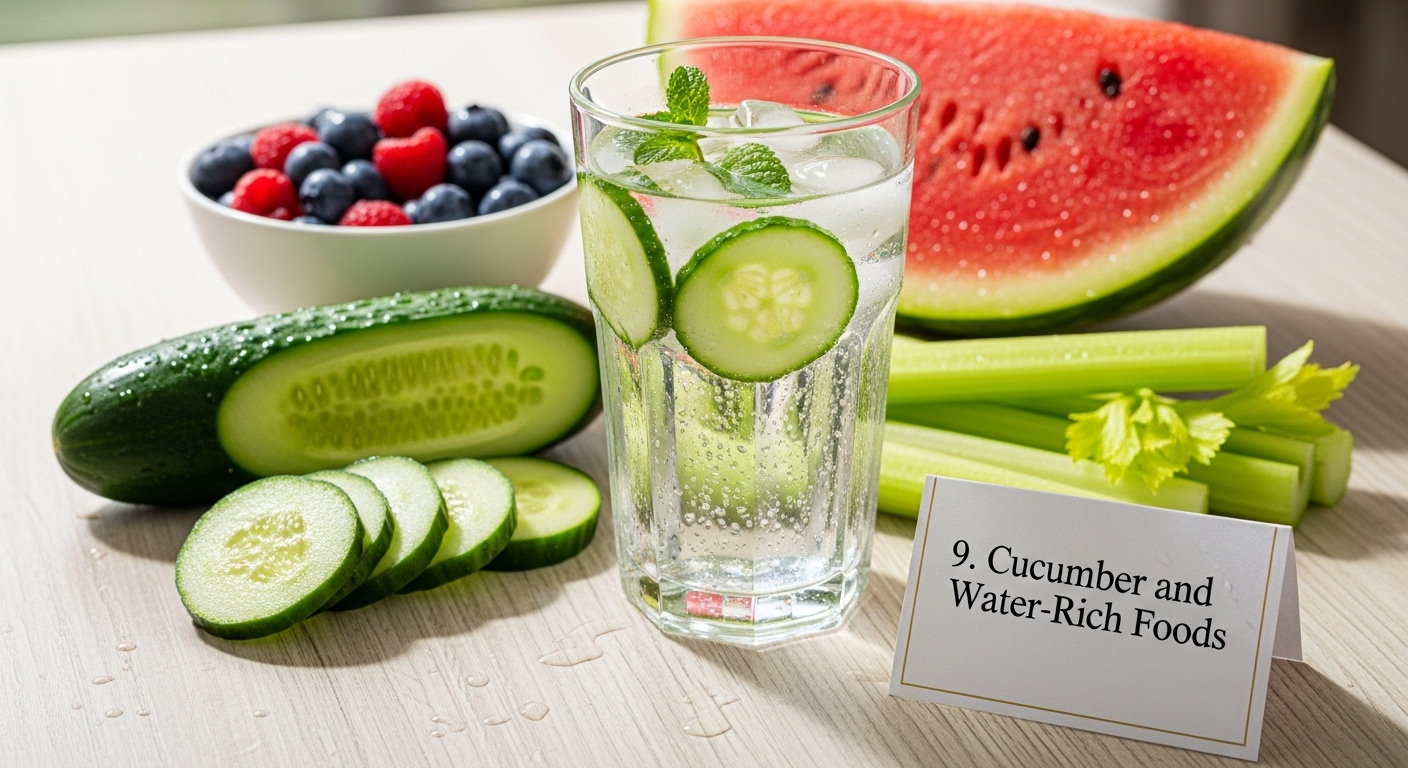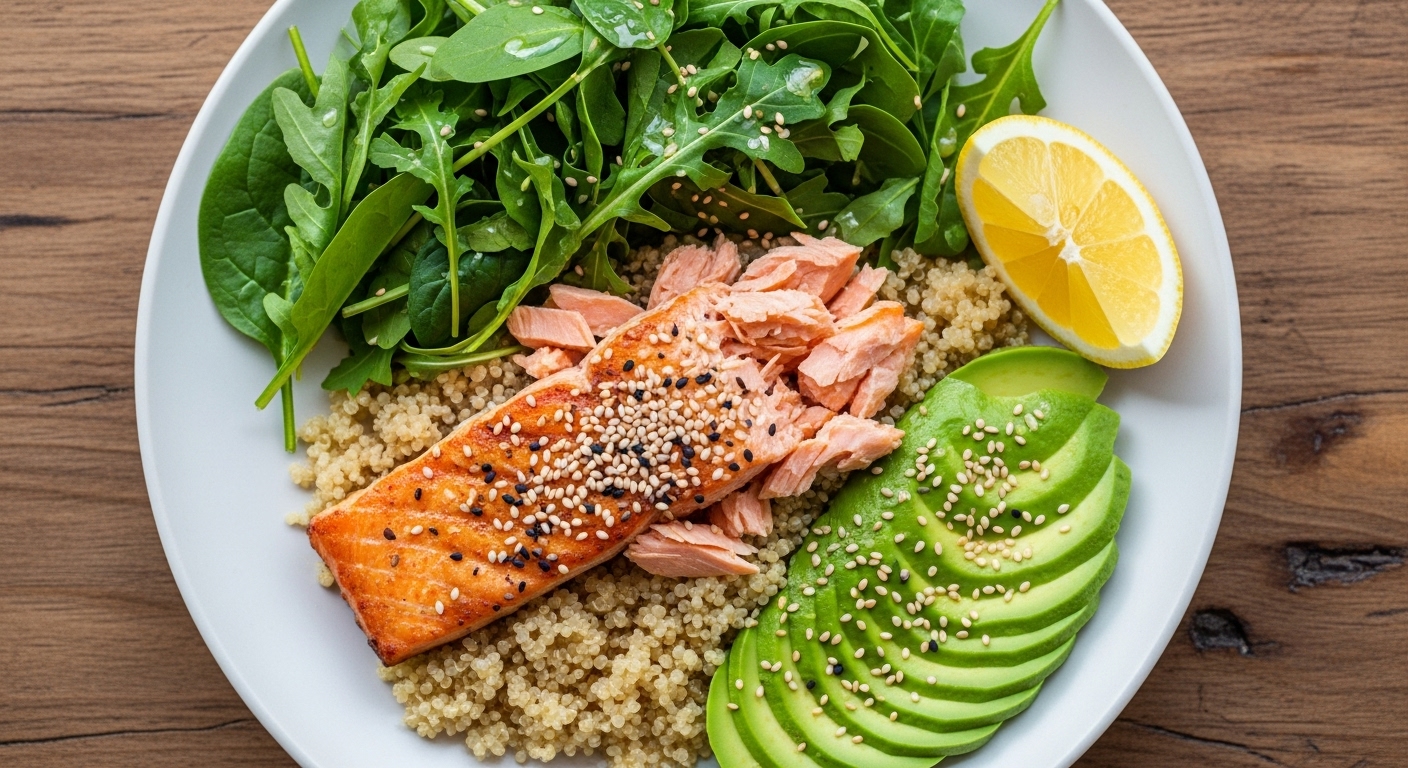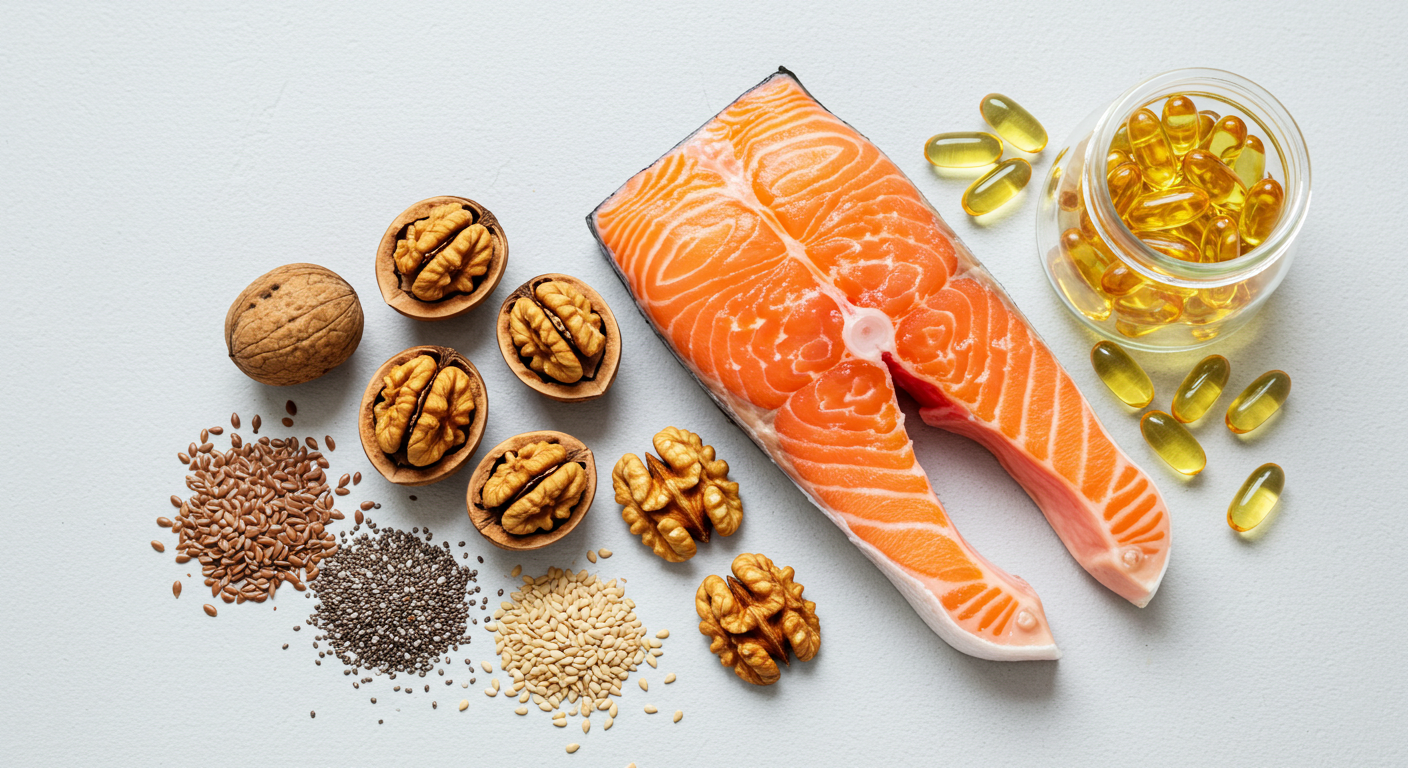Omega-3s do more than support your heart—they nourish your skin, boost mood, and fight inflammation. Discover where to get them and how much you need.

Why Omega-3s Are Worth the Hype
You’ve probably heard of omega-3 fatty acids, often linked to heart health and fish oil. But these essential fats are just as powerful for your skin, brain, and overall wellness.
Since your body can’t produce omega-3s on its own, they must come from your diet. And here’s the catch—many modern diets are low in them, especially if you’re not eating fatty fish regularly.

What Are Omega-3s Exactly?
Omega-3s are a type of polyunsaturated fat with powerful anti-inflammatory properties. There are three main types:
- ALA (Alpha-linolenic acid) – Found in plant sources like flaxseed and walnuts
- EPA (Eicosapentaenoic acid) – Found in fatty fish, supports mood and heart health
- DHA (Docosahexaenoic acid) – Also found in fish, essential for brain and eye development
According to the World Health Organization and various nutrition experts, getting enough omega-3s is crucial for long-term health.

Health Benefits of Omega-3s
Omega-3s don’t just protect your heart—they play a starring role in your overall vitality. Some of their science-backed benefits include:
- Skin hydration and elasticity: Omega-3s help maintain the skin’s lipid barrier, preventing dryness and signs of aging.
- Reduced inflammation: Great for people with acne, eczema, or joint pain.
- Better brain function: DHA is critical for memory, mood, and cognitive health.
- Improved heart health: Helps reduce triglycerides, lower blood pressure, and support circulation.
- Hormonal balance: Especially helpful for women dealing with PMS or menopause symptoms.

Best Natural Sources of Omega-3s
No need to rely on supplements if you can get these whole-food sources into your diet:
- Salmon, sardines, and mackerel – Rich in EPA and DHA
- Chia seeds – Packed with ALA and fiber
- Flaxseeds (ground) – Great in smoothies or oatmeal
- Walnuts – A crunchy plant-based source
- Seaweed and algae oils – Especially important for vegetarians and vegans
- Eggs (omega-3 enriched) – A versatile way to boost intake
Aim for two servings of fatty fish per week, or a daily dose of plant-based omega-3s if you’re vegan.

How Much Do You Need?
The general recommendation is:
- 250–500 mg/day of combined EPA and DHA for adults
- Higher intakes may be beneficial for heart disease, inflammation, or during pregnancy (for fetal brain development)
If you’re unsure about your intake, consider speaking with a registered dietitian or healthcare provider.

What to Watch Out For
- Too much omega-6 (common in processed vegetable oils) can offset omega-3 benefits. Strive for a better balance.
- Supplements can be helpful, but quality matters—choose third-party-tested fish or algae oils.
- Mercury in fish: Choose low-mercury options like salmon, sardines, and anchovies, especially during pregnancy.
Final Thoughts
Omega-3s are an unsung beauty and brain booster. By including them regularly in your meals, you support glowing skin, a balanced mood, and long-term health—from the inside out. In nutrition, sometimes the smallest things make the biggest difference.








